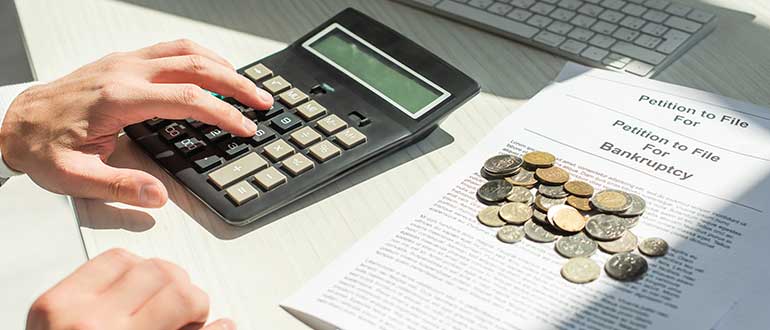
When you file for bankruptcy, it can be a complex and confusing process. One of the critical questions that people have is how bankruptcy will affect their tax debt. If you are considering bankruptcy and want to know what happens to your bankruptcy and IRS tax debt, this blog will help answer some of your questions. Here are five things to know about how bankruptcy affects tax debt.
Overview of Bankruptcy and Tax Debt
Bankruptcy is a legal procedure that enables individuals to eliminate their debts and begin anew. This process gives the debtor a fresh start by eliminating their outstanding debt. Chapter 7 and Chapter 13 are the most commonly utilized forms of bankruptcy. Chapter 7 bankruptcy involves liquidation, which means that the debtor’s non-exempt assets are sold to pay off their creditors, including IRS tax debt.
On the other hand, Chapter 13 bankruptcy allows the debtor to keep their assets while repaying their creditors over time, making it a reorganization bankruptcy. In terms of tax debt, filing for bankruptcy may be a viable choice if you are unable to pay your taxes. Depending on the type of bankruptcy and tax debt you have, filing for bankruptcy can help you reduce or eliminate your tax debt.
You Can Discharge Your Tax Debt in Bankruptcy
The first thing to know is that you can discharge your tax debt in bankruptcy. This means that your tax debt will be eliminated, and you won’t have to pay it back. However, certain conditions must be met to discharge your tax debt.
To be eligible for a tax debt discharge, you must have filed a tax return for the tax debt in question at least three years before filing for bankruptcy. You also must not have filed a fraudulent return or attempted to evade or defeat taxes. Finally, the tax debt must be at least three years old on your bankruptcy filing date.
Your Bankruptcy Will Not Discharge All Types of Tax Debt
It is important to note that your bankruptcy will not discharge all types of tax debt. For example, you will not be eligible for discharge if you owe back taxes under three years old. In addition, the IRS has the right to challenge the discharge of your tax debt sometimes. This means that even if your tax debt meets the above criteria, the IRS may still try to collect the debt.
You May Have to Pay a Portion of Your Tax Debt
If your tax debt is not eligible for discharge, you may still be able to pay a portion of the debt through your bankruptcy. This is known as a “partial payment plan,” and it can help you manage your tax debt in a manageable way. Under this plan, you will pay a portion of your tax debt over three to five years. The amount you pay will depend on your income and other factors.
You May Be Able to Reduce Your Tax Debt Through Bankruptcy
If you cannot pay your tax debt in full, you may be able to reduce the amount you owe through bankruptcy. This is known as a “cram down,” and it can help you manage your tax debt in a more manageable way. Under this plan, you can reduce your tax debt to the value of your assets at the time of your bankruptcy filing.
You May Be Able to Get Relief from Penalties and Interest
If your tax debt is not discharged, you may be able to get relief from penalties and interest that have accrued on the debt. This can help you manage your debt more efficiently and reduce the amount you owe. However, it is important to note that this relief is not guaranteed. You should speak to a qualified attorney to discuss your options.
These are just a few things to know about how bankruptcy affects tax debt. It is important to remember that every situation is different, and you should consult a qualified attorney to understand your options.
In Conclusion
Filing for bankruptcy can be a complicated and confusing process. However, it can be a viable option for people struggling to pay their IRS tax debt. Depending on the type of bankruptcy and tax debt, eliminating or reducing the debt may be possible.
However, there are conditions you must meet to discharge the debt, and not all types of tax debt can be eliminated. Understanding your options and consulting a qualified attorney is essential to navigating the complex and confusing bankruptcy and tax debt process. Ultimately, the goal is to manage the debt manageable and move towards a fresh start.
